Why not Bermuda?
brodie910
16 years ago
Featured Answer
Sort by:Oldest
Comments (94)
lou_spicewood_tx
16 years agolast modified: 9 years agoquirkyquercus
16 years agolast modified: 9 years agoRelated Discussions
Where to begin?
Comments (1)I cannot stress this enough... It makes no sense to do this halfassed. Kill/remove the undesired grasses and plant something tried and proven for your region. Ryegrass is just a waste of time. It's a waste because it's just going to die and the bermuda/zoysia/whatever is going to suffer and every year that goes by of doing this you're wasting money on tttf seed (if you use tttf seed) only for it to get outcompeted by the aggressive warm season grass in late summer. When you could be using that time to get your tttf established so that it can hold it's own in the heat and drought periods. I know saying goodbye is the hardest part of lawn renovation. I even wrote a post about it a week or so ago. But this is a change that will bring about good things. The longer you wait on this the more work you're going to make for yourself and more money wasted year after year. Eastern TN is too far north for bermuda, plant something better for year round color. If you don't like to use chemicals you can try laying plastic film over the area in attempt to solarize it. Either way if you want to do this job right, you have very limited time left to kill it off....See MoreFescue Lawn After Bermuda Grass Lawn
Comments (22)>How big of an area are you talking about?Rather small, actually. It's a small strip alongside the driveway, measuring something like 5' x 10'. >I'm going to go back to TW's first post and suggest that your friend should learn to love Bermuda.I suppose he could learn to love dandelions, oxalis and crabgrass as well, but that's really not an ideal suggestion for my fescue lawn or garden beds growing alongside it. I can't understand anyone who *chooses* to grow Bermuda grass. It's invasive to every other part of your landscape, ugly (compared to fescue anyway) and turns a lovely shade of brownish gray in the winter. :( Solarization sounds like the most effective choice, but lord, having a dead lawn next door for the next year hardly has me dancing for joy. But I appreciate the suggestions....See MoreBermuda grass without runners?
Comments (8)It's bermuda. Wait. I need to emphasize that a little more. IT'S BERMUDA!!! This means you won't need seed. So that is one strike against your sprinkler contractor. Seriously, bermuda is well known around the world as the fastest growing turf grass there is. Most people think of it as a weed, but it does make an excellent, high quality, turf. You don't have to do anything and you'll have full coverage about a month after it comes out of dormancy. Trust me on this. Seeding into bermuda is about the biggest mistake new bermuda owners make. Seeded bermuda can cause you to have a weedy looking turf from now on. The best thing you could do is to make sure there is a crown over top of the sprinkler pipe trenches. If they left the trenches flat or even with the surrounding surface, then that is 2 more strikes against the contractor. Immediately put that contractor on your sh--list and get some more soil or sand. If you don't then in 3 years you'll know exactly where the trenches are, because the soil will have settled and sunk in. For something like a sprinkler it should crown up 1/2 to 3/4 inch higher than the surrounding soil. If you decide to seed it anyway, seeding prior to June is almost always a waste of time. Bermuda seed needs hot soil and plenty of sunlight. Starting in about April we'll get questions from people who seeded in March and can't understand why their bermuda isn't coming in. Well, they did it too early. The additional benefit of waiting is that you'll know exactly where the grass is thin, if the grass is thin. And if the grass is thin, please take pictures from a distance and post them back here. Thin bermuda almost always comes from too much shade like a tree, fence, or house. Did your sprinkler contractor set you up to water every day? They almost all do. You need to fix that immediately. This time of year your lawn needs deep watering once per month. Deep means 1 full inch all at one time. Time how long it takes your new sprinklers to fill some cat food or tuna cans placed around the yard. Remember that time because you'll use it every time you water from now on. The only thing that changes is the frequency of watering from monthly to every 3 weeks, 2 weeks, and then weekly in the hottest heat of summer. You should never water every day. Where do you live?...See Morewhy does my bermuda lawn have streaks?
Comments (9)Where do you live? Even in the hottest heat of a Phoenix summer you should never water bermuda on a daily basis. Deep and infrequent is the mantra for watering. This is for all turf grass all over the place. Deep means 1 inch all at one time. Put some cat food or tuna cans around the yard, and time how long it takes your sprinkler(s) to fill all the cans. Memorize that time. That will be the time you water from now on. My hose, sprinkler and water pressure takes 8 full hours to fill the cans. Your time will likely be less. I like gentle watering. As for watering frequency, that depends on the daytime air temperature. With temps in the 90s, deep water once per week. With temps in the 80s, deep water once every 2 weeks. With temps in the 70s, deep water once every 3 weeks. With temps below 70, deep water once a month. Note that you have to keep up with quickly changing temps in the spring and fall. This deep and infrequent schedule works in Phoenix and in Vermont, so it should work for you. The reason for deep and infrequent is to grow deeper, more drought resistant roots and to allow the soil to dry completely at the surface for several days before watering again. If it rains, reset your calendar to account for the rainfall. That watering advice won't address your brown spots, but it is very important that you get the watering under control. Referring to your picture, what direction is the camera aimed? I need north, south, east, or west or some mix of those. Would you characterize your soil as perfectly even and level or does it have holes that catch the wheels of your mower? How high/low are you mowing it?...See Moreatlmotodude
16 years agolast modified: 9 years agotexas_weed
16 years agolast modified: 9 years agoquirkyquercus
16 years agolast modified: 9 years agoquirkyquercus
16 years agolast modified: 9 years agostephen9
16 years agolast modified: 9 years agoatlmotodude
16 years agolast modified: 9 years agotexas_weed
16 years agolast modified: 9 years agoquirkyquercus
16 years agolast modified: 9 years agostephen9
16 years agolast modified: 9 years agotexas_weed
16 years agolast modified: 9 years agoquirkyquercus
16 years agolast modified: 9 years agostephen9
16 years agolast modified: 9 years agoquirkyquercus
16 years agolast modified: 9 years agolou_spicewood_tx
16 years agolast modified: 9 years agoauteck
16 years agolast modified: 9 years agostephen9
16 years agolast modified: 9 years agotexas_weed
16 years agolast modified: 9 years agoheelsfan
16 years agolast modified: 9 years agoauteck
16 years agolast modified: 9 years agoturf_toes
16 years agolast modified: 9 years agoquirkyquercus
16 years agolast modified: 9 years agoauteck
16 years agolast modified: 9 years agostephen9
16 years agolast modified: 9 years agoheelsfan
16 years agolast modified: 9 years agotexas_weed
16 years agolast modified: 9 years agoauteck
16 years agolast modified: 9 years agoauteck
16 years agolast modified: 9 years agostephen9
16 years agolast modified: 9 years agoturf_toes
16 years agolast modified: 9 years agoquirkyquercus
16 years agolast modified: 9 years agoheelsfan
16 years agolast modified: 9 years agoturf_toes
16 years agolast modified: 9 years agostephen9
16 years agolast modified: 9 years agotexas_weed
16 years agolast modified: 9 years agotexas_weed
16 years agolast modified: 9 years agoquirkyquercus
16 years agolast modified: 9 years agostephen9
16 years agolast modified: 9 years agoquirkyquercus
16 years agolast modified: 9 years agostephen9
16 years agolast modified: 9 years agoquirkyquercus
16 years agolast modified: 9 years agostephen9
16 years agolast modified: 9 years agoquirkyquercus
16 years agolast modified: 9 years agoshabuttafly
16 years agolast modified: 9 years agotexas_weed
16 years agolast modified: 9 years agomuddbelly
16 years agolast modified: 9 years agoshir0
15 years agolast modified: 9 years agoauteck
15 years agolast modified: 9 years agoshir0
15 years agolast modified: 9 years ago
Related Stories

DECORATING GUIDESYour Décor: Put a Monogram on It
15 ways to leave your initials around the house
Full Story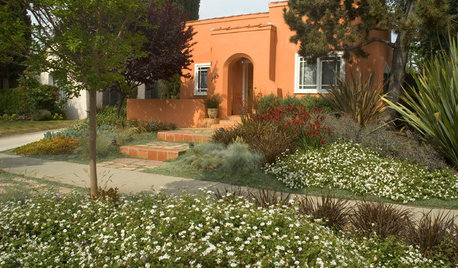
GREAT HOME PROJECTSHow to Replace Your Lawn With a Garden
New project for a new year: Lose the turfgrass for energy savings, wildlife friendliness and lower maintenance
Full Story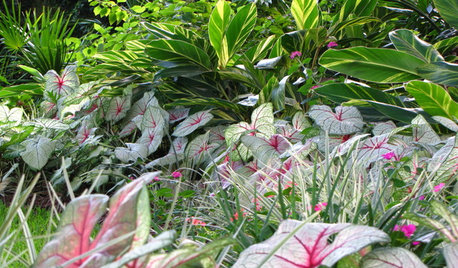
LANDSCAPE DESIGNDitch Shade Garden Gloom the Tropical Way
Has your shade garden strayed too far to the dark side? Help it see the light with tropical bulbs, ground covers and even houseplants
Full Story
GARDENING GUIDES5 Great Grasses for a New Lawn
Learn about maintenance, wear tolerance, ideal climate and more for these top turf choices to pick the right one for you
Full Story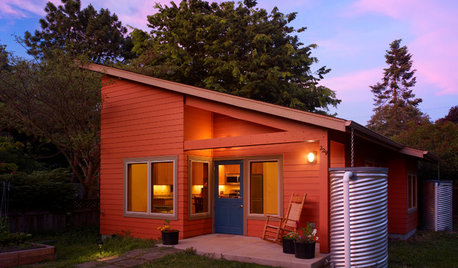
GREEN BUILDINGHow to Harvest Rainwater for Your Garden
Conserve a vital resource and save money by collecting stormwater for irrigation in a barrel or tank
Full Story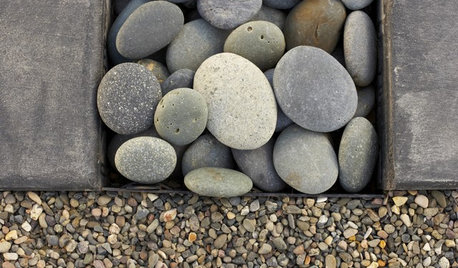
LANDSCAPE DESIGNThe Right Stone for Your Garden Design
Gravel, pebble, cobble and paddle: Stones vary in size and shape, and have different uses in the landscape
Full Story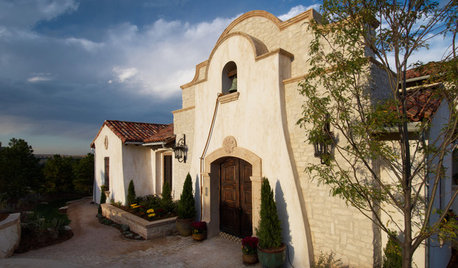
ARCHITECTURERoots of Style: Mission
Spanish colonial missions inspired a style of architecture still popular in the United States
Full Story
EDIBLE GARDENSNatural Ways to Get Rid of Weeds in Your Garden
Use these techniques to help prevent the spread of weeds and to learn about your soil
Full Story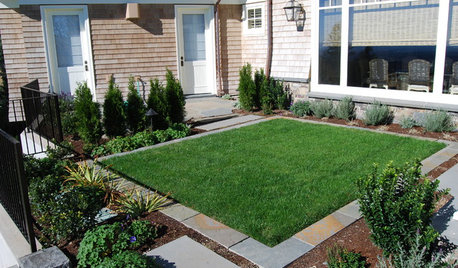
GARDENING GUIDESHow to Prep Your Ground for a Healthy New Lawn
Seed or sod that falls on weedy, lumpy soil is a wasted effort. Follow these steps to ensure that your new lawn will thrive
Full Story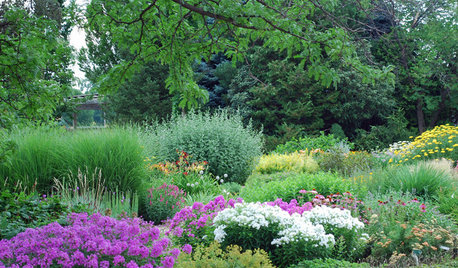
LANDSCAPE DESIGNTake Your Garden on a Rural Route With Plant-Dominant Designs
Let plants take center stage for a garden that recalls idyllic pastures fashioned by nature's hand
Full Story



stephen9